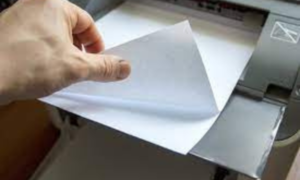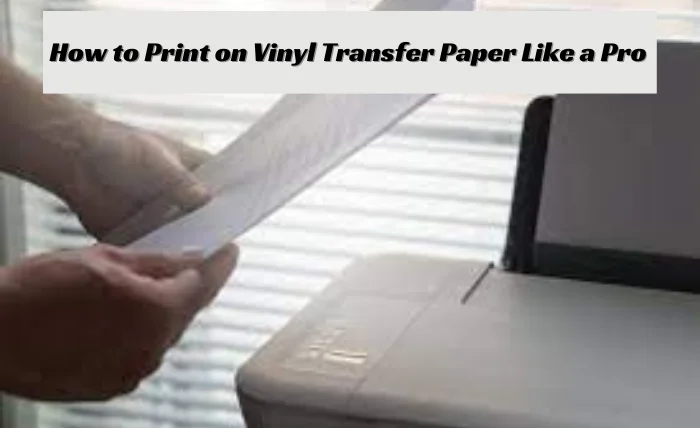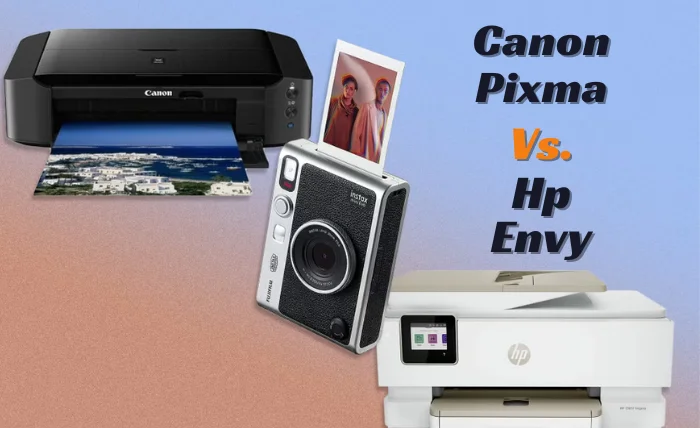Want to print your custom designs on t-shirts, mugs, and other surfaces? Printing on vinyl transfer paper lets you transfer images onto various materials with your home printer. However, the smooth, glossy surface of transfer paper can be tricky for some printer models to handle. Without proper preparation and settings, you may end up with ink smearing or rejection of the transfers. But with the proper techniques, you can successfully print vibrant, durable images for all your DIY projects.
This article explains everything you need to know about printing on vinyl transfer paper. You’ll learn tips for choosing the right transfer paper, optimizing printer settings, applying transfers, and getting eye-catching results. With these simple steps, you’ll be embellishing surfaces like a pro.
The Basics Print on Vinyl Transfer Paper Printing

Getting to Know Your Tools
In the creative journey, it’s crucial to acquaint yourself with the tools of the trade. From a quality printer to the correct type of vinyl transfer paper, having the proper equipment lays the foundation for successful projects. Explore various printer options and invest in high-quality transfer paper for optimal results.
The Right Printer Settings
Before diving into your first project, take a moment to understand your printer settings. Adjusting the print quality, color settings, and paper type can significantly impact the outcome. Experiment with settings on a test sheet to find the perfect combination for your specific printer and transfer paper.
Exploring Compatible Surfaces
Vinyl transfer paper isn’t limited to just t-shirts. Discover the versatility of this medium by experimenting with various surfaces. From mugs to tote bags, understanding which surfaces work best for your projects expands the scope of your creativity.
Creativity with Vinyl Transfer Paper
Printing on vinyl transfer paper isn’t just about transferring images; it’s a canvas for your imagination. Explore different design software, unleash creativity, and turn ordinary items into personalized masterpieces.
Step-by-Step Guide: Printing on Vinyl Transfer Paper
Preparing Your Design
The first step in any successful project is careful planning. Prepare your design using graphic design software, ensuring it’s the right size and resolution for your chosen surface. This attention to detail sets the stage for a flawless transfer.
Loading the Vinyl Transfer Paper
Once your design is ready, load the vinyl transfer paper into your printer. Pay attention to the manufacturer’s instructions on positioning the form for optimal printing. A well-loaded sheet ensures precise image transfer.
Adjusting Printer Settings
Before hitting the print button, double-check your printer settings. Ensure the correct paper type is selected, and experiment with color profiles to achieve the desired vibrancy. A test print on regular paper can help you fine-tune these settings before committing to the transfer paper.
Printing Your Design
It’s time to bring your design to life with everything in place. Hit the print button and watch as your creation takes form on the vinyl transfer paper. The anticipation builds as the printer works magic, preparing to transfer your design to the chosen surface.
Peeling and Applying the Transfer
Once the printing is complete, carefully peel the vinyl transfer paper, revealing your design. Position it on the chosen surface, applying even pressure to ensure a smooth transfer. Follow the manufacturer’s instructions for heat or pressure settings, depending on the type of transfer paper used.
Fine-Tuning Your Process
Addressing Color Discrepancies
If your final print doesn’t match the vibrant colors on your screen, delve into color calibration. Adjusting your monitor settings and ensuring consistent color profiles can bridge the gap between digital and physical representations.
Perfecting Image Alignment
Misalignment can be a common issue when working with vinyl transfer paper. Combat this challenge by using alignment guides in your design software and double-checking the positioning before printing. Precision in alignment enhances the professional look of your finished product.
Preventing Ink Bleeding
Ink bleeding can muddy the clarity of your design. Combat this by choosing the right paper type in your printer settings, ensuring it matches the specifications of your transfer paper. Additionally, consider adjusting the ink density to prevent bleeding on porous surfaces.
Mastering Heat and Pressure Application
Achieving the perfect transfer involves mastering the delicate balance of heat and pressure. Experiment with different settings, considering that each surface may require specific adjustments. A little trial and error go a long way in finding the optimal combination for your chosen projects.
Exploring Advanced Techniques
Once you’ve mastered the basics, dive into advanced techniques to elevate your projects. Explore layering, textured surfaces, and unique color combinations. The world of vinyl transfer paper printing is vast, and there’s always room to push your creative boundaries.
Celebrating Success and Showcasing Your Creations
Documenting Your Journey
Document your progress as you embark on your vinyl transfer paper printing adventures. Create a visual diary of your projects, noting the techniques and settings that yielded the best results. This personal creative archive can be a helpful reference for future endeavors.
Sharing Your Creations
Don’t keep your creations to yourself—share them with the world! Utilize social media platforms, craft forums, or even start your blog to showcase your projects. Sharing your journey connects you with a like-minded community and inspires others to explore the world of vinyl transfer paper printing.
Seeking Feedback and Improvement
Embrace a continuous improvement mindset by seeking feedback from fellow crafters and enthusiasts. Constructive criticism can be a valuable tool for refining your techniques and taking your skills to the next level. Remember, every project is an opportunity to learn and grow.
Exploring New Avenues
With the foundation of vinyl transfer paper printing under your belt, explore new avenues within the crafting world. From sublimation printing to mixed-media projects, the skills you’ve acquired open doors to many creative possibilities. Stay curious and continue to push the boundaries of your craft.
Conclusion
The art of printing on vinyl transfer paper is a journey of creativity and precision. You can transform ordinary items into personalized masterpieces with the right tools, printer settings, and a dash of imagination. Following the step-by-step guide and fine-tuning your process, you’ll print vibrant, durable images for all your DIY projects.
So, embrace the art, share your creations, and explore new horizons in vinyl transfer paper printing. Now, go ahead and embellish surfaces like a pro with the confidence of a seasoned crafter.












